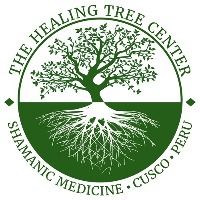7 Day Concise Dietary Restrictions before Ceremony
Guidelines Before Your Ceremony
The first and most important dietary restriction is to avoid any food or beverage that contains Tyramine. Tyramine is an amino acid that occurs naturally in many foods, but it can interact negatively with Ayahuasca and cause a dangerous increase in blood pressure.
Example of the list of dietary restrictions:
1. Aged cheese: Bleu cheese, cheddar cheese, feta cheese, gouda cheese, parmesan cheese, and Swiss cheese.
2. Fermented foods: Soy sauce, miso soup, tofu, tempeh, sauerkraut, kimchi, pickles, and vinegar.
3. Meats: Pepperoni, salami, cured meats, smoked meats, any red meat and especially pork
4. Fish: Canned tuna, anchovies, herring, and mackerel.
5. Fruits: Avocado, banana, and citrus fruits.
6. Vegetables: Eggplant, tomatoes, and spinach.
7. Nuts and seeds: Almonds, Brazil nuts, peanuts, and sesame seeds.
In addition, as part of dietary restrictions is to avoiding foods that contain tyramine, it is also recommended to avoid certain drugs and medications that can interact with Ayahuasca. These include antidepressants, antipsychotics, and mood stabilizers. It is important to consult with a healthcare provider before discontinuing any medication to ensure a safe transition.
Other dietary restrictions that may be recommended before Ayahuasca include avoiding cigarettes, caffeine, alcohol, chocolate and any substances that alter consciousness, such as recreational drugs. It is also important to drink plenty of water and eat a balanced diet in the days leading up to the ceremony. Also avoid spicy food and excessive salt and sugar, and food or beverages with colouring, artificial flavours or preservatives.
Do not take any medical prescription drugs, female contraceptive pills ( some are ok), antibiotics, injections, natural supplements or vitamins in the week prior to, and during your retreat. If you are currently taking medication which must be taken continuously, please discuss with us as soon as possible, before your retreat.
This dietary restrictions must be followed for the 7 days – one week prior to your retreat start date.
It is worth to mention that the dietary restrictions vary depending on the traditions and practices of the Ayahuasca facilitator or shaman leading the ceremony. It is important to communicate any dietary needs or concerns with the facilitator before the ceremony and to follow their guidelines closely to ensure a safe and effective experience.
In summary, dietary restrictions before Ayahuasca are important to ensure a safe and effective experience with this powerful plant medicine. Avoiding foods and beverages that contain tyramine is crucial, as well as avoiding certain drugs and substances that can interact negatively with Ayahuasca. Consult with a healthcare provider and the facilitator leading the ceremony to ensure a safe and successful experience with this powerful plant medicine.
Recommended food: Eat well and healthy! When possible, eat good quality, organic food. White meats i.e. chicken and fish are permitted. Fish is particularly recommended, as it contains many powerful nutrients for the brain. Search for vegetarian restaurants which can offer a variety of tasty food.

Important
For patient safety we reserve the right to refuse treatment to patients with the following conditions:
Pregnancy
Heart surgery/pace maker
Blood disease
Mental illness (eg.Schizophrenia, Bipolar disorder)
Anti-depression medication contains chemicals which do not interact well with Ayahuasca. If you are on any such medication you must discuss this with The Healing Tree Center administration before commiting to a retreat, so we can plan the best and safest course of action with you. Usually we ask to stop anti-depressants 1-2 months before.
For women, if you are pregnant you will not be able to participate in a retreat as it can result in miscarriage and intoxication.
Additional points: We recommend abstaining from sexual activity, including masturbation, 2 days before the retreat, as it can reduce your physical energetic levels during your ceremonies.
Recommendations for spiritual and mental preparation
Prior to your retreat we recommend meditation, prayer, yoga, or any other spiritual/ religious practice familiar to you. If you do not practice any particular religion or spirituality we suggest focusing on a sincere personal prayer, morning and night, leading up to your ceremony.
The attitude before and during the retreat must be honesty (with others and yourself!), love, respect, humility, courage, mental and spiritual strength.
Meditation is an ancient practice that has been widely used as a means of reducing stress, inducing relaxation, and achieving inner peace. It involves focusing the mind on a particular object, thought, or activity to attain a state of mental and emotional calm. While it seems simple, meditation is not always easy for everyone. Fortunately, there are many meditation techniques that can help you achieve your desired results. In this article, we’ll explore some of the most popular meditation techniques and how they can benefit your mental and emotional wellbeing.
1. Mindfulness Meditation
Mindfulness meditation is a popular technique that involves paying attention to the present moment. It involves bringing awareness to your surroundings, sensations, and thoughts without judging or reacting to them. Mindfulness meditation is often used as a stress-reduction technique and has been shown to reduce symptoms of anxiety, depression, and chronic pain.
To practice mindfulness meditation, find a quiet and comfortable place to sit. Begin by focusing on your breath and gradually expand your awareness to your physical sensations, thoughts, and emotions. When your mind wanders, gently bring it back to the present moment without judgment.
2. Transcendental Meditation
Transcendental meditation is a technique that involves using a mantra or sound to focus the mind. It is a simple and effective way to reduce stress, anxiety, and improve overall wellbeing. By repeating a mantra, the mind transcends thought and achieves a state of deep relaxation.
To practice transcendental meditation, find a quiet place to sit and choose a mantra. Repeat the mantra silently in your mind, allowing other thoughts to pass. If your mind wanders, gently bring it back to the mantra.
3. Loving-Kindness Meditation
Loving-kindness meditation is a technique that involves sending positive thoughts and intentions to oneself and others. It involves cultivating feelings of compassion, kindness, and love towards oneself and others.
To practice loving-kindness meditation, find a quiet and comfortable place to sit. Begin by focusing on your breath and gradually bring to mind someone you love and care for. Silently recite phrases of well wishes to them. Gradually expand your circle of love and care to include all beings. Finally, send positive intentions to yourself.
4. Body Scan Meditation
Body scan meditation is a technique that involves bringing attention to different parts of the body. It helps in reducing tension, stress, and anxiety by releasing physical tightness and promoting awareness of the body.
To practice a body scan meditation, find a quiet and comfortable place to lie down. Begin by focusing on your breath. Gradually, move your attention through each part of the body, starting from the top of the head and working down to your feet. Notice sensations, tension, or discomfort in each body part and allow them to release gently.
In conclusion, meditation is a powerful tool for promoting mental and emotional wellbeing. By practicing meditation techniques such as mindfulness, transcendental, loving-kindness, and body scan, you can achieve a state of profound relaxation, reduce stress, and cultivate inner peace. Incorporate these techniques into your daily routine, and watch as you experience a transformation in your life.

Dietary restrictions the night before and day of the ceremony
The night before the day of the ceremony, please eat a large, healthy dinner, which follows the dietary restrictions (no red meat, spice etc). During the day of the ceremony you will be fasting all day, so do not consume food, only water throughout this day.
